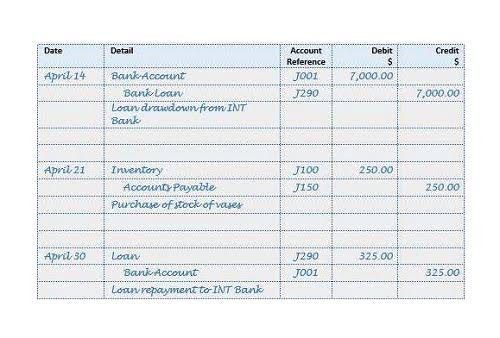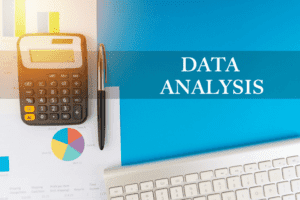
Management accountants often employ cost accounting to help companies save on expenses and increase profits. You might think it’s all about crunching numbers, but there’s more to the story. Accountants are financial storytellers, translating complex data into clear insights that drive business decisions. Whether you’re running a business or just curious, understanding what accountants do is essential in today’s economy. Our AI-powered Anomaly Management Module helps accounting professionals identify and rectify potential ‘Errors and Omissions’ on a daily basis so that precious resources are not wasted during month close. It automates the feedback loop for improved anomaly detection and reduction of false positives over time.
What are the different types of accounting?

The outages were first noticed in Australia early on Friday, and reports quickly came in from the rest of Asia and Europe as the regions began their day, as well as the United States. But this time, because of a flawed update to its software, a firm that is normally part of the solution to IT problems has instead caused one. As a provider of cyber-security services, it tends to get called in to deal with the aftermath of hack attacks. The US firm, based in Austin, Texas, is a listed company on the US stock exchange, featuring in both the S&P 500 and the high-tech Nasdaq indexes.

Is an accounting career the right fit for you?

We have helped accounting teams from around the globe with month-end closing, reconciliations, journal entry management, intercompany accounting, and financial reporting. Internal reports are also prepared for management, submitting detailed insights into financial performance and supporting strategic decision-making. Accountants do variance analysis, comparing actual results with budgeted figures to identify and explain differences. Accountants must also prepare regulatory reports, ensuring compliance with financial disclosure requirements and assisting with external audits. Many also provide strategic advisory services on taxation, investing, cash flow management, and other operational areas of organizational finance.
CMA vs. CPA
If becoming an accountant is the next step in your career, there are many resources available, such as accounting programs to help you prepare for this role. Additionally, a certified public accountant (CPA) is an accountant who has passed the CPA exam and has met state licensing requirements. An accountant assists with decision-making by providing well-analyzed financial data, identifying trends, and forecasting future financial scenarios. This information is invaluable when making strategic business decisions such as expansion, investment, or cost-cutting. The benefits of having an accountant are numerous, ranging from ensuring regulatory compliance and providing financial clarity to aiding in decision-making and offering strategic tax planning.
- At the state and local levels, they may work to manage use of local revenues, investigate fraud and perform lower-level audits.
- They match bank statements to book entries, ensuring every penny in the business is accounted for.
- As such, an industry-wide push for transparent reporting has influenced the financial reporting process.
- Accountants, including management accountants, are the backbone of any business, ensuring the accuracy and integrity of financial records.
- From tax optimization strategies to personalized financial advice, accountants use a plethora of techniques tailored to your unique situation.
What Skills Do Accountants Need?
Explore our collection of informative and educational blog posts to stay updated on the latest industry trends and expert advice. Learn more by exploring the Accounting and Finance courses from Open Colleges. On the other hand, Accountants are responsible for managing financial assets and providing relevant advice.
Management Accountants

Skipping this step is like missing a piece on a jigsaw puzzle – the picture’s incomplete, and you’re set for potential headaches when tax season rolls around. Finding the right accountant is like choosing a trusted guide for your financial journey; they navigate the numbers so you don’t hit any rocks. Before you partner up, it’s essential to understand what fills an accountant’s day. Jump into their daily tasks, and you’ll appreciate the map they draw to your financial success. As you consider what type of accountant to hire, think about your future accounting needs. If you’re looking to expand your business, a management accountant might be helpful.
Certification requirements for specialised accountants
Accountants ought to prioritize tasks, manage time effectively, and ensure that all financial records are systematically maintained. Good organization is also important for preparing for audits and compliance with regulations. External auditors perform comprehensive analytical reviews of individual or corporate financial records to ensure they conform to all applicable laws and guidelines. They may examine records in cases of suspected wrongdoing, or perform audits by request to ensure organizational financial records meet all regulations. Compliance officers ensure their companies follow the law when it comes to financial records.
There are various types of accountants, including public accountants, management accountants, government accountants, forensic accountants, and auditors, each serving different needs. Public accountants provide a variety of accounting services to individuals, businesses, and government agencies. They analyze financial data to identify trends and make future predictions, assisting in strategic business decisions. Other steps on this professional journey include personal accountant securing a Master’s degree in Accounting and additional certifications like Certified Management Accountant (CMA) and Enrolled Agent (EA). Let’s investigate further the educational and certification prerequisites for aspiring accountants. Accountants are vital for sustainable growth and prosperity as they guide individuals and businesses through financial decision-making, tax planning, and the ever-evolving fiscal regulations, ensuring long-term success.
What is the job role of an accountant?
- Most accountants are in charge of a wide scope of finance-related tasks, either for private individuals or for large-scale businesses and organizations they are employed with.
- Always seek an accountant who understands your business ethos and is proactive in implementing a financial plan that aligns with your vision.
- They also assess financial records for potential areas of growth and increased efficiency.
- Integrity Network members typically work full time in their industry profession and review content for Accounting.com as a side project.
- With the onset of digital currencies, a new breed of accountants has emerged – cryptocurrency tax accountants.
- Each accounting job description or role will depend on the specific industry and will often be unique.
Students should focus on courses in mathematics, business, and economics, as these subjects provide the fundamental skills needed for accounting. Exposure to these areas can build analytical and problem-solving abilities that are crucial for future accounting studies and practice. To become an accountant, you should experience a series of educational steps, gain relevant work experience, and often obtain professional certifications. Regular reconciliation tasks are also part of their duties, https://www.bookstime.com/articles/how-much-does-bookkeeping-cost including bank reconciliations to ensure that bank statements match recorded transactions and account reconciliations to verify the accuracy of various accounts. This article provides a comprehensive exploration of these questions, offering insights into the accountant’s role, responsibilities, and the pathway to entering this profession. Additionally, we will clarify the distinctions between bookkeeping and accounting, two terms often used interchangeably but with significant differences.


